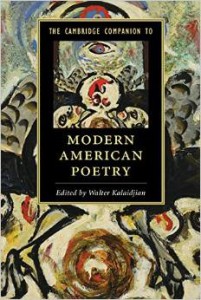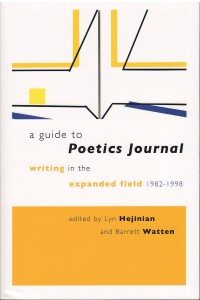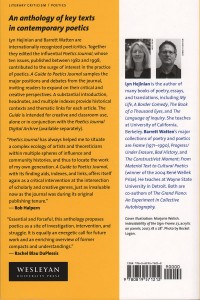Barrett Watten, “The Poet/Critic:
Transvaluations of Value after Modernism”
MSA, 20 November 2015
I continue my discussion of the poetics of value in modernism (Wallace Stevens and William Carlos Williams) in taking up political economy and poetics as twin forms of historically specific making, twin discourses of the determination of value. For poetics as value making, let me advance that the thirty-six individual essays in our recent Guide to Poetics Journal, along with the editorial and publication work involved in soliciting, editing, rethinking, and repurposing their content, counts as such. Each essay in our Guide—for example, Ron Silliman on “the parsimony principle,” George Lakoff on avant-garde framing, Susan Howe on Emily Dickinson, Lyn Hejinian on “the rejection of closure,” in the volume’s first section—demonstrates how poetry is a value-making activity, in giving value to it. … More















